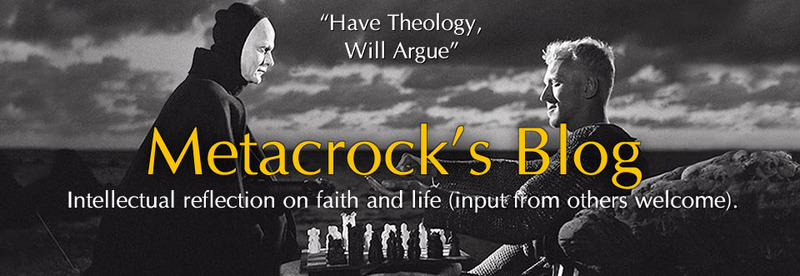
From Bermann's greatest work The Seventh Seal
In my view the greatest film maker ever was Ingmar Bergmann. Today, July 30th greatness left the world as Bergmann himself finally danced off over the horizon with Death, just as his knight hero Antonius Bach does in The Seventh Seal, Bergmann's greatest film, a film any critics have doubted "the greatest film ever made."
Bergmann was an atheist, the son of a minister and Chaplin to the King of Sweden. He produced a huge body of works in the 50's and 60's and set the tone for films in that decade and beyond. In such films as Hour of the Wolf, The seventh Seal, Wild Strawberries, Virgin Spring, crys and whispers, Bergmann wrestled with the oceanic topics of life, aunxt, meaning, the existence of God, the anxiety of being human.
The one criticism I would make is that his films were very like stage plays. They were packed with references to the theater where Bergmann has his start. This doesn't dampen the greatness of his work. Rather it brings a missing element.
watching those films makes up some of the happiest memories of my youth. For me he will always be symbol of the greatness of art and the discovery of life and the search for ultimate meaning.
My two favorite films of all time are Wild Strawberries and The Seventh Seal. I only other director I place on the same level is Kurosawa.
One of my favorite scenes from Wild strawberries deals with two young men competing of the attention of a young woman. The travel with a old professor who is on his way to accept the greatest honor of his life, an academic achievement award. The two men, a seminarian and an atheist are constantly fighting about the existence of God. But of course their true motivation for conflict is competition for the girl. They finally come to blows. They are forced back in the car by the old professor. As they each take seats on either side of the girl, bloodied from the encounter and with black eyes, she turns to one of them and says "so, does God exist?"
Bergmann is one of the finest examples of the style of atheism into which I fitted when I was young. Searching, pondering the great questions, an existentialist who is never satisfied with conventional answers.
foundChivalry Now
The Seventh Seal
The knight playing chess with Death.
This movie, from 1957, is Ingar Bergman's greatest film, and considered by many to be one of the greatest films of all time.
The story is about a knight returning home from the crusades. He finds the land ravaged by plague and religious fanatics. On his journey, he is visited by Death, who agrees to let the knight live if he can beat him at a game of chess.
The following is taken from the script where the knight mistakenly thinks he is confessing to a priest, but it is Death who is listening. It expresses the existential struggle of this knight searching for truth.
ANTONIUS: I want to confess, as best I can, but my heart is void. The void is a mirror. I see my face, and feel loathing and horror. My indifference to men has shut me out. I live now in a world of ghosts, a prisoner in my dreams.
DEATH: Yet you do not want to die.
ANTONIUS: Yes I do.
DEATH: What are you waiting for?
ANTONIUS: Knowledge.
DEATH: You want a guarantee?
ANTONIUS: Call it what you will. Is it so hard to conceive of God with one's senses? Why must He hide in a mist of vague promises and invisible miracles? How are we to believe the believers when we don't believe ourselves? What will become of us who want to believe, but cannot? And what of those who neither will nor can believe? Why can I not kill God within me? Why does He go on living in a painful, humiliating way? I want to tear Him out of my heart. But He remains a mocking reality which I cannot get rid of. I want knowledge. Not belief. Not surmise. But knowledge. I want God to put out His hand, show His face, speak to me. But He is silent. I cry to Him in the dark, but there seems to be no one there.
DEATH: Perhaps there is no one there.
ANTONIUS: Then life is a senseless terror. No man can live with Death and know that everything is [for] nothing.
DEATH: Most people think neither of Death nor nothingness.
ANTONIUS: Until they stand on the edge of life, and see the Darkness.
Synopsis:
A knight tries to pray along the seaside, but is unable to. He is troubled by the requirements of faith. Although he has gone to the Holy Land to fight in the Crusade for God, all he saw there was death and injustice, and men of twisted faith. He asks himself, "where is God? What is the meaning of existence without Him? Where can I find any sense to life?" He is an idealist who is troubled. He is no longer set in the ideals given to him, but questions everything to find a greater truth. What troubled him most is that there seems to be no idealized truth to grasp onto, and this leaves him searching in despair.
The squire is more down to earth, the disenchanted intellectual who demands that everyone else see the world from his disenchantment. He has not only lost his ideals (if he ever had them), but lost the desire to find something greater than what he sees. He is the existentialist. Basically he resents his station, that of serving the more idealistic knight.
Death accepts the challenge of playing the game of chess, giving the knight a chance to continue search for God, and dedicate his life to doing one good act. One wonders if we are not all playing chess with Death, postponing the inevitable, which might be waiting for us around the next corner.
The married couple, the actors, represent a healthy relationship, despite their obvious hardships. They love each other, and their son. The father tells his wife that their son will be a great acrobat, that he will accomplish the incredible (keeping the ball suspended in mid-air). He then explains that the trick would be impossible for him or his wife, but not necessarily for Mikael. In this statement, he expresses hope for the future, and disavows limitations on the next generation. There is a simple idealism expressed in this. We live and then we die, allowing evolution to produce something better. We should facilitate this process. That the actor sees visions suggests that he is in tune with his own mystical experiences, which transcends the rituals of religion.
The squire has great disrespect for priests, whom he sees as taking advantage of common people, using fear as a tool. He degrades those religious idealists who created the idea of a Holy Crusade. The thought of religious fanatics beating themselves out of repentance frightens him.
The man who steals from the dead was previously a student of theology who proselytized going to the Crusade. He is now a thief, and attempts to rape the woman who discovers his treachery. The squire believes that this is the natural progression of religious leaders. The man belittles and threatens the actor, hating him for his simple authenticity. He later dies of the plague.
The burning of the witch demonstrates how our belief in God and angels and the devil are ultimately based on nothing we can see or touch. There is life, and there is death. The witch who believes in the devil is obviously insane. Are the priests who condemn her, and the soldiers who kill her much different? The knight experiences anguish at her death, as the squire points out that only emptiness awaits her.
The actor who has the affair with the blacksmith's wife feigns his own death. Before stabbing himself with the fake knife, he states that he will leave the unreality of his life, and take on the reality of a corpse. This is a powerful statement of existential thought. The living person is not static; he is always creating himself, with every choice and direction that he takes. This is likened to "unreality." The dead corpse is, in comparison, a fixed object, without conscious potential. It's reality does not change. It is dead, not alive.
The knight distracts Death long enough for the married couple to escape. This is his good deed, and the answer to what he was looking for. Our purpose is to preserve life for the future. Other than that, we cannot be sure of anything. Even Death seems pleased by the knight's pleasure. The knight asks Death for what he knows about the mysteries of life. Death can tell him nothing. It appears that Death is more of a reality than God.
The ending is very interesting. Everyone dies, except for the couple and their baby, who have escaped. The knight begs his unseen God for mercy, while the squire complains that he is wasting his breath. They both die, but who is the one who contributed the most to life? It is the discouraged idealist who seeks for truth. His life had more meaning in that he saved the lives of others.


